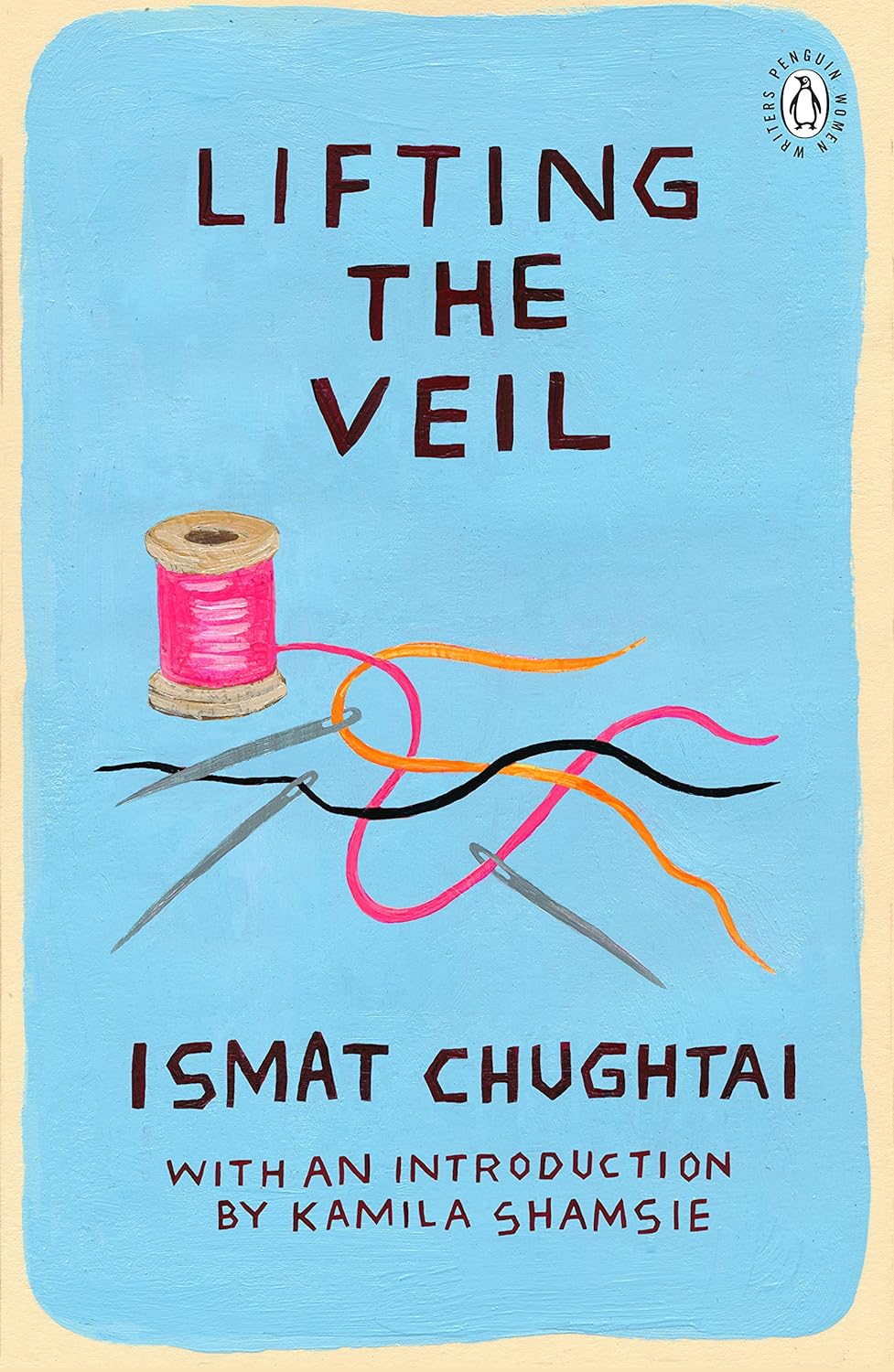
Lifting the Veil
Unnamed Female Narrators
Lifting the Veil is a title which carries implications spanning across western and eastern traditions. Consider the image of the veiled bride, a female figure condemned to lifelong possession. The veil is lifted to reveal the bride, for the pleasure of the male gaze. But in this collection of short stories, Ismat Chughtai turns that trope on its head.
It is the veil over our eyes which is lifted revealing rich, complicated lives. Originally written in Urdu, these stories yank us into an ungainly world which straddles colonial occupation and a sudden awakening into a South Asian subcontinent divided by deep wounds, into newly independent nation states. Perhaps well-described as an unassuming feminist, Ismat Chughtai grabs at the beauty and ugliness of life in heaping measures with two strong female hands shaped by the storytellers who surrounded her.
Women and the female gaze are central to these stories, but nothing feels contrived. Chughtai simply invites readers to experience these rich microcosms of life which, despite their small physical spaces, reflect so deeply the internal and external struggles of their historical context.
In all their glory, the women of her stories commit such shocking acts as earning money, swearing, and having sex. Sometimes, the characters feel so over-the-top in their archetypes – like the crone or the whore – that even harrowing circumstances can descend into something almost slapstick.
In ‘The Homemaker’, live-in-maid Lajo relishes in her promiscuity even as her lust-struck employer Mirza tries to tame her. When he finally gets her to submit, he begins treating her as society accepts a wife to be – leaving her alone at home and beating her for her disobedience. It’s hard to make a toxic spiral comical, but in the end Lajo sheds the skin of a pure and decent wife.
‘The Quilt’ is one of Ismat Chughtai’s most well-known works because the story was charged in the High Court of Lahore for obscenity, for its depiction of lesbian sex. We get to read her own reflections during this bizarre experience in, In the Name of those Married Women… which is the closing piece. With no intention of repenting, she is more excited for the trip to Lahore. Meanwhile, people are begging her to apologize and her male contemporaries are, for the most part, raging. How could she write something so shameless? It’s alright when they write about sex, but she’s a woman!
Ismat Chughtai wrote what she saw as the truth and therefore wasn’t ashamed of ‘The Quilt’. Shame is a theme which runs rampant throughout the stories and I thoroughly enjoyed her approach to it in Vocation.
An unnamed female narrator wastes a lot of energy casting judgements on her neighbors whom she is certain are sex workers, aka courtesans. It’s clear that the narrator is dissatisfied with her life and like most decent and chaste women, was probably raised to fear female sexuality.
So it is funny and painfully relatable – for any woman who’s ever been judged… – to watch her wrestle with her confusion while trying to maintain a sense of superiority, to be the better kind of woman. They must be too lazy to do anything else or they were violated by men and thus felt too besmirched to hold a respectable job. Most of these stories were written in the 1940s, but they should be required reading for anyone interested in South Asian literary fiction. Ismat Chughtai has been described as one of the pillars of Urdu literature, but her fearlessness in storytelling spans across cultures. I’m grateful for the existence of a powerful book like Lifting the Veil.

